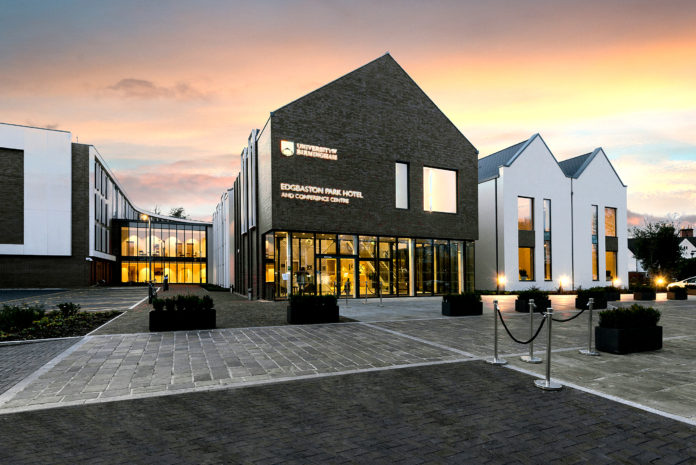Edgbaston Park Hotel and Conference Centre is used to welcoming VIPs – but their current guest list is extra special.
The University of Birmingham’s flagship hotel has been providing NHS staff and other key workers a place to stay since 19 March 2020. Located just a short stroll from the Queen Elizabeth Hospital, it’s the ideal location for essential workers to stay safely, limiting the additional risks of travel and
General Manager Richard Metcalfe said, ‘It’s a huge privilege to be able to help in this way. We’ve had about 2000 overnight stays, with around 40 key workers staying per night.
‘Hot and cold room service is available to support social distancing and work around shift patterns, and there’s a takeaway breakfast every morning. Once we realised we couldn’t continue our usual operations, of course we wanted to pitch in. We’ve had to make lots of changes to keep everyone safe, but it’s all worth it. I’m very proud of the whole team.’
The hotel has added a screen in reception, additional hand sanitisers in public areas, and extra deep-cleaning. Most guests are NHS staff. Other key workers include contractors from a local hospital site.
The hotel’s overnight stays for key workers joins other vital work at the University of Birmingham to support the fight against Covid-19. University researchers are at the forefront of the battle, from helping to map the spread of the virus by whole genome-sequencing to supporting a national testing hub. Over 600 students from the Medical School have been allocated roles in hospitals, GP surgeries and answering NHS 111 enquiries. The University has donated supplies of PPE, and sourced more donations from university partners in China. The University’s labs are making hand sanitiser for Birmingham City Council frontline staff. One of the University’s nurseries has also remained open, to support the children of key workers.
‘As a hotel our priority is always to give guests an excellent experience in a safe environment,’ adds Richard Metcalfe. ‘Knowing who we’re looking after, that now seems more important than ever.’












